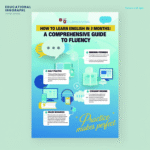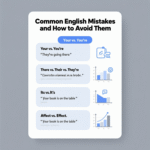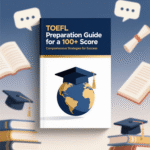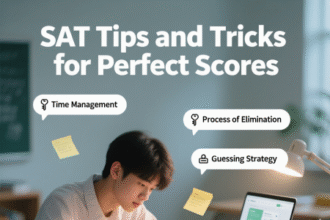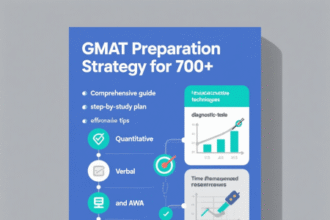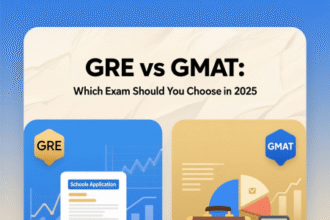Balancing a demanding career with preparation for competitive exams (Competitive Exam Strategy) is a formidable challenge, yet it is an achievable goal with the right strategies. Working professionals often juggle tight schedules, workplace responsibilities, and personal commitments, leaving limited time for studying. However, with a structured approach, efficient time management, and a focus on high-impact study techniques, success in competitive exams is within reach. This comprehensive guide provides working professionals with actionable, detailed strategies to excel in competitive exams such as civil services, banking, MBA entrance tests, or professional certifications. We cover everything from crafting a study plan to leveraging technology, ensuring every minute spent studying is optimized for success.
- Understanding the Unique Challenges of Working Professionals
- Crafting a Realistic Study Plan for Competitive Exams
- Mastering Time Management for Exam Preparation
- Building a Strong Foundation in Core Subjects
- Taking Mock Tests and Analyzing Performance
- Maintaining Motivation and Mental Health
- Leveraging Weekends for Intensive Study
- Adapting to Unexpected Challenges
- Choosing the Right Study Materials
- Preparing for Exam Day
- Recommendations and Suggestions
- Frequently Asked Questions (FAQs) – Competitive Exam Strategy
Understanding the Unique Challenges of Working Professionals
Working professionals face distinct challenges when preparing for competitive exams. Unlike full-time students, professionals must navigate long work hours, unpredictable schedules, and mental fatigue from workplace demands. These constraints make it essential to adopt a tailored approach to exam preparation. Key challenges include:
-
Limited Study Time: Full-time jobs often leave only a few hours daily for studying, requiring professionals to maximize efficiency.
-
Mental Fatigue: After a demanding workday, maintaining focus during study sessions can be difficult.
-
Balancing Responsibilities: Family obligations, social commitments, and workplace duties compete for time and attention.
-
Syllabus Overload: Competitive exams often cover vast syllabi, requiring strategic prioritization to cover key topics effectively.
To overcome these obstacles, we recommend a disciplined, goal-oriented approach that integrates study time seamlessly into a busy lifestyle. Below, we outline a step-by-step strategy to help working professionals prepare effectively.
Crafting a Realistic Study Plan for Competitive Exams
A well-structured study plan is the cornerstone of success for working professionals preparing for competitive exams. Unlike traditional students, professionals cannot dedicate entire days to studying, so the plan must be realistic, flexible, and tailored to fit a busy schedule.
Assessing Available Time
Start by conducting a time audit to identify pockets of availability in your daily routine. Consider:
-
Morning Hours: Early mornings (e.g., 5:00 AM to 7:00 AM) are often quiet and conducive to focused study before work.
-
Commute Time: Use commutes for audio-based learning, such as listening to exam-related podcasts or recorded lectures.
-
Evenings and Weekends: Allocate specific evening hours (e.g., 8:00 PM to 10:00 PM) and larger weekend blocks for in-depth study.
-
Lunch Breaks: Utilize short breaks during work hours for quick reviews, such as flashcards or summary notes.
A typical working professional might have 2–4 hours daily for studying, with additional time on weekends. For example, a schedule could include 1.5 hours in the morning, 30 minutes during lunch, and 2 hours in the evening, totaling 4 hours on weekdays and 6–8 hours on weekends.
Breaking Down the Syllabus
Competitive exams often have extensive syllabi, so breaking them into manageable sections is critical. Follow these steps:
-
Obtain the Syllabus: Download the official syllabus from the exam’s website to ensure accuracy.
-
Categorize Topics: Group topics into core subjects (e.g., Quantitative Aptitude, Reasoning, General Knowledge) and subtopics (e.g., algebra, puzzles, current affairs).
-
Prioritize High-Weightage Areas: Analyze past papers to identify frequently tested topics and focus on those first.
-
Set Milestones: Divide the syllabus into weekly or monthly goals, ensuring all topics are covered before the exam.
For instance, for an exam like the UPSC Civil Services, prioritize General Studies Paper I (History, Geography) and Paper II (Aptitude) based on their weight in the exam. Allocate specific weeks to cover modern history, physical geography, or data interpretation.
Creating a Weekly Study Schedule
A weekly schedule ensures consistent progress. Here’s an example for a working professional preparing for a banking exam:
-
Monday–Friday:
-
5:30 AM–7:00 AM: Quantitative Aptitude (e.g., practice 20 problems on percentages and ratios).
-
12:30 PM–1:00 PM: Review current affairs using a mobile app during lunch.
-
8:00 PM–10:00 PM: Reasoning (e.g., solve puzzles and seating arrangement questions).
-
-
Saturday:
-
9:00 AM–12:00 PM: General Knowledge (e.g., read NCERT books for history).
-
2:00 PM–5:00 PM: Mock test and analysis.
-
-
Sunday:
-
9:00 AM–1:00 PM: English Language (e.g., reading comprehension, vocabulary).
-
3:00 PM–6:00 PM: Revise weak areas identified during the week.
-
Adjust this schedule based on your work demands and energy levels. Use tools like Google Calendar or Notion to set reminders and track progress.
Mastering Time Management for Exam Preparation
Effective time management is critical for working professionals. By optimizing study sessions and minimizing distractions, you can make the most of limited time.
Using the Pomodoro Technique
The Pomodoro Technique enhances focus by breaking study time into intervals. Here’s how to implement it:
-
Study for 25 minutes with complete focus, avoiding all distractions.
-
Take a 5-minute break to stretch or hydrate.
-
Repeat for four cycles, then take a longer 15–30-minute break.
-
Use apps like Forest or Focus@Will to stay on track.
This method is particularly effective for mentally taxing subjects like Quantitative Aptitude or Logical Reasoning, as it prevents burnout.
Prioritizing High-Value Tasks
Not all study tasks are equally important. Use the Eisenhower Matrix to prioritize:
-
Urgent and Important: Practice high-weightage topics or take mock tests close to the exam date.
-
Important but Not Urgent: Build foundational knowledge in weaker areas early in preparation.
-
Urgent but Not Important: Avoid spending excessive time on low-value tasks like re-reading familiar topics.
-
Neither Urgent nor Important: Eliminate distractions like social media during study hours.
For example, if you struggle with Quantitative Aptitude, prioritize practicing problems over re-reading static General Knowledge notes.
Leveraging Technology for Efficiency
Technology can streamline preparation. Consider these tools:
-
Online Study Platforms: Platforms like Unacademy, BYJU’S, or Testbook offer video lectures, quizzes, and mock tests tailored for competitive exams.
-
Note-Taking Apps: Use Evernote or OneNote to organize notes by topic, accessible across devices.
-
Flashcard Apps: Apps like Anki or Quizlet help with quick revision of key concepts, such as vocabulary or formulas.
-
Time-Tracking Apps: Toggl or Clockify can monitor how much time you spend on each subject, ensuring balanced coverage.
By integrating these tools, you can study smarter, not harder, even with a demanding work schedule.
Building a Strong Foundation in Core Subjects
Competitive exams typically test a range of subjects, such as Quantitative Aptitude, Reasoning, English, and General Knowledge. Below, we provide strategies for mastering each.
Quantitative Aptitude
Quantitative Aptitude is a cornerstone of many competitive exams, including banking, SSC, and CAT. Key topics include percentages, ratios, algebra, geometry, and data interpretation.
-
Understand Core Concepts: Start with basics using resources like NCERT math books (Class 8–10) to build a strong foundation.
-
Practice Regularly: Solve 20–30 problems daily from books like R.S. Aggarwal’s Quantitative Aptitude or online platforms like IndiaBIX.
-
Learn Shortcuts: Master time-saving techniques, such as approximation for calculations or Vedic math for quick multiplication.
-
Analyze Mistakes: After each practice session, review incorrect answers to understand errors and avoid repeating them.
For example, to improve in data interpretation, practice analyzing charts and graphs from previous years’ papers. Aim to solve one set daily, gradually reducing the time taken.
Logical Reasoning
Reasoning tests critical thinking through puzzles, seating arrangements, and syllogisms. Strategies include:
-
Start with Easy Topics: Begin with topics like blood relations or number series, which are less time-intensive.
-
Practice Puzzles Daily: Solve at least one complex puzzle (e.g., 7-person seating arrangement) daily to build speed and accuracy.
-
Use Visual Aids: Draw diagrams for problems like seating arrangements to visualize relationships.
-
Take Mock Tests: Regular mock tests simulate exam conditions, improving your ability to think under pressure.
Books like A Modern Approach to Verbal & Non-Verbal Reasoning by R.S. Aggarwal are excellent resources.
English Language
English is critical for exams like IBPS, UPSC, or CAT, testing reading comprehension, vocabulary, and grammar.
-
Improve Vocabulary: Learn 10–15 new words daily using apps like Vocabulary.com or books like Word Power Made Easy by Norman Lewis.
-
Practice Reading Comprehension: Read editorials from newspapers like The Hindu or The Indian Express to improve speed and understanding.
-
Master Grammar: Study grammar rules from Wren & Martin and practice exercises on topics like sentence correction and error spotting.
-
Write Regularly: Practice writing essays or precis to enhance articulation, especially for descriptive sections.
For example, dedicate 30 minutes daily to reading comprehension, aiming to answer 5–7 passages with 90% accuracy.
General Knowledge and Current Affairs
General Knowledge (GK) and current affairs are vital for exams like UPSC, SSC, or banking.
-
Read Newspapers Daily: Spend 30–60 minutes reading The Hindu or The Indian Express for national and international news.
-
Follow Monthly Magazines: Magazines like Yojana or Pratiyogita Darpan summarize key events.
-
Use Apps: Apps like Inshorts or Gradeup provide concise current affairs updates for quick review.
-
Revise Static GK: Cover history, geography, and polity using NCERT books (Class 6–12) or Lucent’s General Knowledge.
Create a daily habit of noting 5–10 key current affairs points in a notebook or app for quick revision.
Taking Mock Tests and Analyzing Performance
Mock tests are indispensable for gauging readiness and identifying weaknesses. They simulate exam conditions, helping you build stamina and time management skills.
Scheduling Mock Tests
-
Frequency: Take one full-length mock test weekly, increasing to two as the exam approaches.
-
Timing: Mimic exam conditions by taking tests at the same time of day as the actual exam.
-
Environment: Create a distraction-free environment, using only permitted materials (e.g., pen, paper, calculator).
Analyzing Mock Test Results
After each test, spend at least an hour analyzing performance:
-
Score Breakdown: Identify strengths and weaknesses by subject and topic.
-
Time Management: Note which sections took the most time and practice to improve speed.
-
Error Analysis: Categorize mistakes (e.g., conceptual errors, calculation mistakes, or time mismanagement) and address them in study sessions.
-
Track Progress: Use a spreadsheet to log scores and monitor improvement over time.
For example, if you score poorly in Reasoning, dedicate extra time to puzzles and revisit mock test questions to understand errors.
Maintaining Motivation and Mental Health
Preparing for competitive exams while working can be mentally taxing. Staying motivated and maintaining mental well-being are critical for long-term success.
Setting Realistic Goals
Break your preparation into short-term and long-term goals. For example:
-
Short-Term: Complete one Quantitative Aptitude chapter by the end of the week.
-
Long-Term: Achieve 80% accuracy in mock tests within three months.
Celebrate small wins, such as mastering a difficult topic, to stay motivated.
Managing Stress
Stress management is crucial to avoid burnout. Try these techniques:
-
Meditation: Practice 10–15 minutes of mindfulness daily using apps like Headspace or Calm.
-
Exercise: Engage in 30 minutes of physical activity, such as walking or yoga, to boost energy and reduce stress.
-
Sleep: Aim for 6–8 hours of quality sleep nightly to enhance focus and retention.
-
Breaks: Take short breaks during study sessions to refresh your mind.
Building a Support System
Surround yourself with supportive peers or mentors:
-
Join Study Groups: Participate in online forums or WhatsApp groups for exam-specific discussions.
-
Seek Guidance: Consult colleagues who have cleared similar exams for tips and encouragement.
-
Communicate with Family: Inform family members about your study schedule to minimize interruptions.
Leveraging Weekends for Intensive Study
Weekends offer valuable time for deeper study and revision. Maximize this time with these strategies:
-
Deep-Dive Sessions: Focus on challenging topics, such as advanced Quantitative Aptitude or lengthy General Studies chapters.
-
Mock Tests: Take full-length mock tests on Saturday mornings, followed by analysis in the afternoon.
-
Revision: Use Sundays to revise notes and practice weak areas identified during the week.
-
Group Study: Collaborate with peers for brainstorming sessions or to clarify doubts.
For example, dedicate Saturday to completing a General Knowledge module and Sunday to practicing Quantitative Aptitude and Reasoning.
Adapting to Unexpected Challenges
Working professionals often face unpredictable work demands, such as overtime or travel. Adapt your study plan with these tips:
-
Flexible Scheduling: If a workday extends, shift study hours to the next morning or weekend.
-
Portable Study Materials: Carry flashcards, e-books, or apps for studying on the go.
-
Micro-Learning: Use short 10–15-minute sessions to review concepts during unexpected downtime.
-
Prioritize Recovery: After intense work periods, take a day to rest before resuming study to avoid burnout.
Choosing the Right Study Materials
Selecting high-quality study materials is essential for efficient preparation. Recommended resources include:
-
Quantitative Aptitude: Quantitative Aptitude for Competitive Examinations by R.S. Aggarwal.
-
Reasoning: A Modern Approach to Verbal & Non-Verbal Reasoning by R.S. Aggarwal.
-
English: High School English Grammar and Composition by Wren & Martin.
-
General Knowledge: NCERT books (Class 6–12), Lucent’s General Knowledge, and The Hindu newspaper.
-
Online Platforms: Unacademy, Testbook, or Oliveboard for video lectures and mock tests.
Avoid overloading with too many resources. Stick to 1–2 books per subject and supplement with online content.
Preparing for Exam Day
As the exam approaches, focus on readiness for the big day:
-
Revise Key Concepts: In the final two weeks, focus on revision rather than new topics.
-
Practice Time Management: Simulate exam conditions in mock tests to perfect pacing.
-
Prepare Materials: Ensure you have all required items (e.g., admit card, ID, stationery) ready the day before.
-
Rest Well: Get adequate sleep the night before to stay sharp during the exam.
On exam day, arrive early, stay calm, and read questions carefully to avoid errors.
Recommendations and Suggestions
To succeed in competitive exams as a working professional, we recommend:
-
Consistency Over Intensity: Study daily, even for short periods, to build momentum.
-
Quality Over Quantity: Focus on understanding concepts rather than cramming.
-
Regular Self-Assessment: Use mock tests to track progress and adjust strategies.
-
Health First: Prioritize sleep, nutrition, and exercise to maintain mental and physical stamina.
-
Stay Updated: Follow exam-related news for updates on patterns, dates, or syllabus changes.
Frequently Asked Questions (FAQs) – Competitive Exam Strategy
-
How can working professionals find time to study for competitive exams?
Create a structured study plan that leverages mornings, commutes, lunch breaks, and weekends. Use tools like Google Calendar to stay organized. -
What is the best way to manage stress during exam preparation?
Practice mindfulness, exercise regularly, and take short breaks during study sessions to reduce stress and prevent burnout. -
How many hours should a working professional study daily?
Aim for 2–4 hours on weekdays and 6–8 hours on weekends, adjusting based on work demands and energy levels. -
Which study materials are best for competitive exams?
Use NCERT books, R.S. Aggarwal for Quantitative Aptitude and Reasoning, Wren & Martin for English, and newspapers like The Hindu for current affairs. -
How important are mock tests for exam preparation?
Mock tests are critical for simulating exam conditions, improving time management, and identifying weak areas. -
Can I prepare for competitive exams without coaching?
Yes, self-study with quality resources, online platforms, and mock tests can be highly effective if done consistently. -
How do I prioritize topics in a vast syllabus?
Analyze past papers to focus on high-weightage topics and break the syllabus into manageable weekly goals. -
What is the Pomodoro Technique, and how does it help?
The Pomodoro Technique involves studying for 25 minutes followed by a 5-minute break, enhancing focus and preventing burnout. -
How can I improve my Quantitative Aptitude skills?
Practice daily with books like R.S. Aggarwal, learn shortcuts, and analyze mistakes to improve accuracy and speed. -
What role does current affairs play in competitive exams?
Current affairs are crucial for General Knowledge sections, requiring daily reading of newspapers and monthly magazines. -
How can I stay motivated during long-term preparation?
Set realistic goals, celebrate small wins, and join study groups for support and accountability. -
Is it possible to prepare for competitive exams with a full-time job?
Yes, with a disciplined study plan, efficient time management, and the right resources, it’s entirely achievable. -
How do I handle unexpected work demands during preparation?
Use flexible scheduling, portable study materials, and micro-learning to adapt to disruptions. -
What apps can help with exam preparation?
Use Anki for flashcards, Evernote for notes, Testbook for mock tests, and Inshorts for current affairs. -
How should I prepare in the final weeks before the exam?
Focus on revision, take frequent mock tests, and ensure you’re well-rested and organized for exam day.





